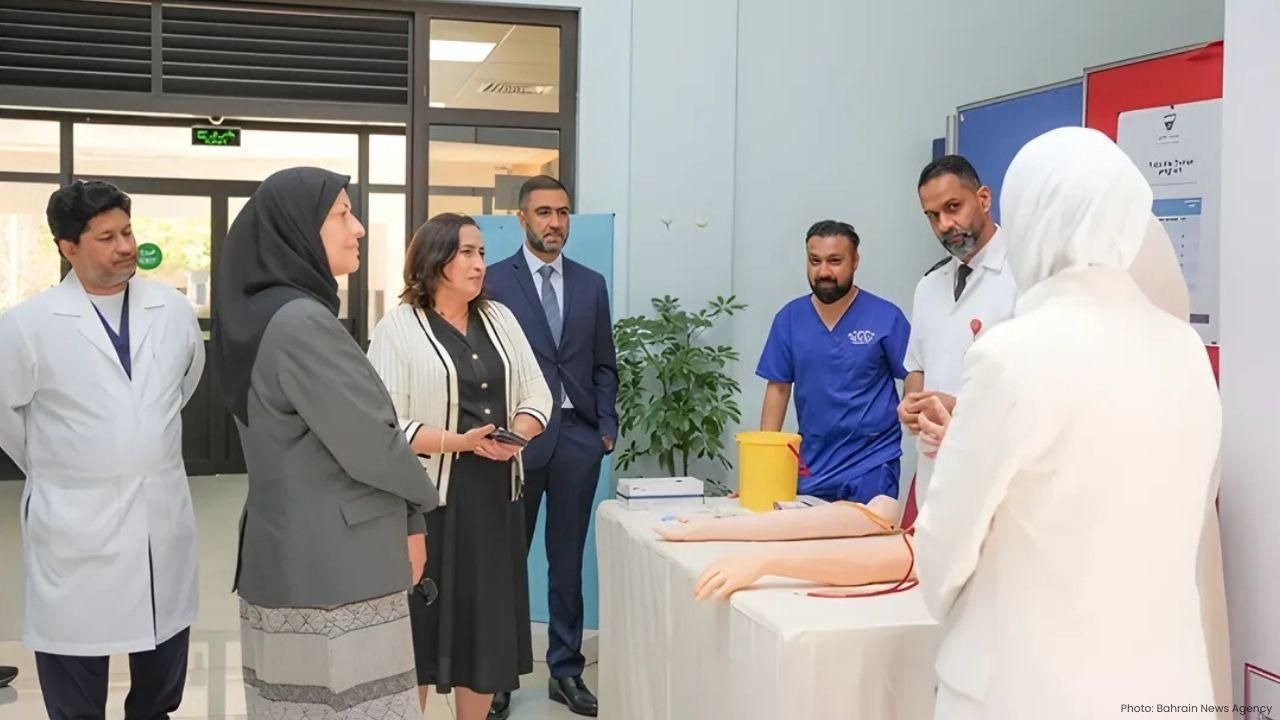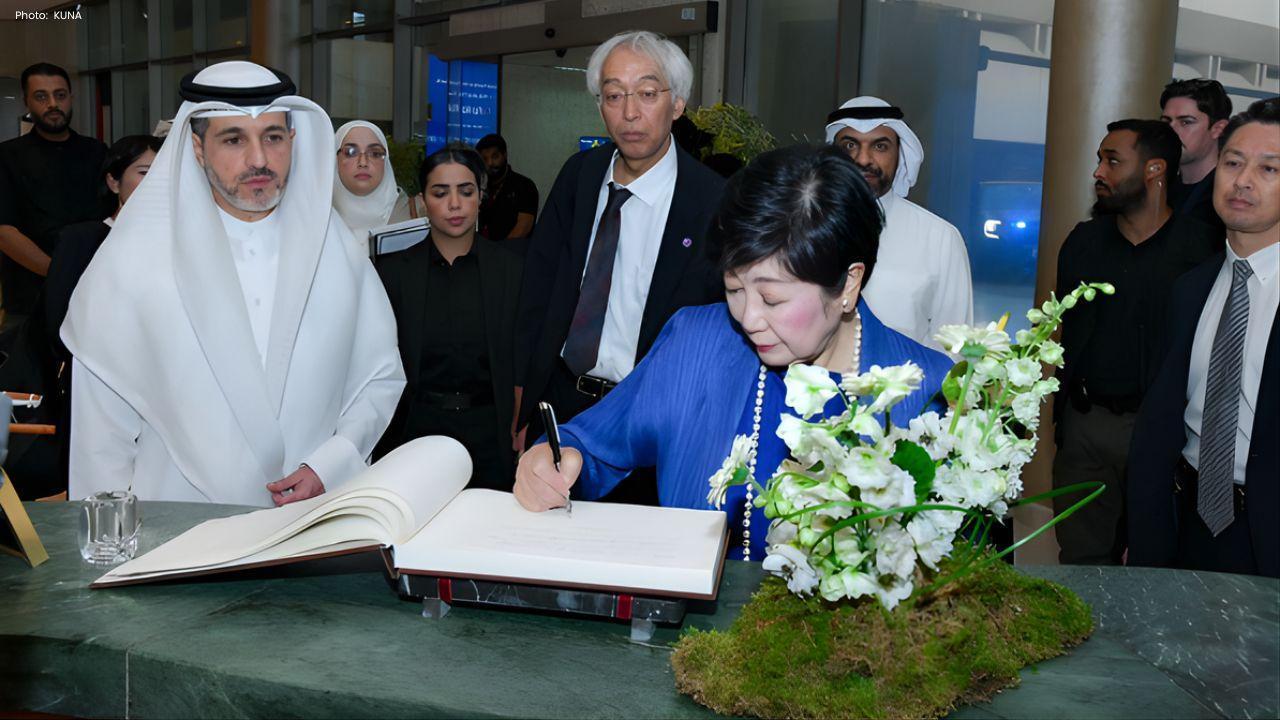
Post by : Mariam Al-Faris
Government Hospitals recently held a specialised training programme focused on improving procedures for blood withdrawal and intravenous (IV) access. The programme aimed to enhance the skills and knowledge of medical and nursing professionals from various hospital facilities. Dr. Mariam Athbi Al Jalahma, CEO of Government Hospitals, attended the event and highlighted the importance of professional development in the healthcare sector.
Goal Of The Initiative
The training programme is part of ongoing efforts by Government Hospitals to raise the overall quality of healthcare services. It focuses on building the capacity of medical staff through adopting international best practices. By implementing the latest safety standards, hospitals aim to provide safer, more efficient, and reliable patient care.
Importance Of Infection Control
Professor Omar Abdulaziz Al Awadhi, Head of Training at Government Hospitals, emphasized the significance of continued compliance with infection-control protocols. He explained that following approved procedures protects both patients and healthcare workers from potential risks. Infection control is a critical aspect of modern healthcare, and adherence to these protocols ensures safe and effective medical treatment.
Training Tools And Exhibitions
The programme featured an exhibition of training tools that showcased the latest equipment and techniques for blood withdrawal and IV access. These tools allowed medical professionals to practice and improve their skills in a controlled environment. The exhibition demonstrated the practical application of theoretical knowledge and helped participants gain hands-on experience.
Specialist Lectures And Knowledge Sharing
The training included a series of specialist lectures delivered by experts from various departments, including anaesthesia, cardiology, orthopaedics, and infection control. These lectures provided participants with in-depth knowledge of safe practices, potential challenges, and innovative solutions. By learning from specialists, medical staff can better handle real-world situations and improve patient care.
Enhancing Patient Safety
A key focus of the programme was enhancing patient safety. Proper blood withdrawal and intravenous procedures reduce the risk of complications such as infections, vein damage, or improper medication delivery. By ensuring medical staff are well-trained and updated on best practices, hospitals can prevent adverse events and promote a safer healthcare environment.
Supporting Healthcare Staff Development
The training programme also serves to support healthcare staff development. Continuous education and skills improvement are vital for maintaining a high standard of medical care. Programs like these provide professionals with the knowledge and confidence to perform procedures accurately, efficiently, and safely.
Implementing International Standards
Government Hospitals aim to align their procedures with international safety and quality standards. The training emphasized the importance of following evidence-based practices that meet global benchmarks. Implementing these standards ensures consistency across all facilities and improves overall healthcare quality in the region.
Multi-Department Collaboration
Experts from multiple hospital departments collaborated during the training to provide comprehensive learning experiences. This approach encourages interdisciplinary communication and sharing of best practices. By working together, different specialties contribute unique insights, helping medical staff to manage complex cases more effectively.
Real-World Application Of Skills
The programme stressed the practical application of skills in real clinical settings. Hands-on practice, demonstrations, and interactive sessions allowed participants to translate theoretical knowledge into effective procedures. This ensures that healthcare professionals are well-prepared to apply what they have learned when treating patients.
Continuous Quality Improvement
Government Hospitals view training programmes as part of a continuous quality improvement process. By regularly updating staff on new techniques, safety protocols, and equipment, hospitals can maintain high standards of care. Continuous improvement benefits both patients and healthcare providers by reducing errors and enhancing treatment outcomes.
Benefits To Patients And Staff
The benefits of the training extend to both patients and healthcare staff. Patients receive safer, more precise care, while medical professionals gain confidence and skill in performing complex procedures. These programs also foster a culture of learning and professional growth within hospitals.
Promoting Best Practices Across Facilities
By training staff from multiple hospital facilities, Government Hospitals promote consistent best practices across the network. This ensures that patients receive the same high standard of care, regardless of which facility they visit. Standardized procedures improve efficiency, safety, and patient satisfaction.
Preparing For Future Challenges
The healthcare environment is constantly evolving, with new techniques, medications, and equipment being introduced regularly. Training programmes like this prepare staff to adapt to changes and handle emerging challenges effectively. Keeping up with advancements in medical practice ensures hospitals remain at the forefront of quality care.
Encouraging Lifelong Learning
Government Hospitals encourage a culture of lifelong learning among their medical staff. Participation in continuous education programmes helps professionals stay current in their field, improve patient care, and contribute to a safer and more effective healthcare system. Lifelong learning is essential for both personal and institutional growth.
The specialised training programme on blood withdrawal and intravenous access at Government Hospitals demonstrates a strong commitment to improving healthcare quality and safety. By equipping medical and nursing professionals with advanced knowledge, practical skills, and awareness of international standards, hospitals can provide safer care and build a stronger, more capable workforce. Such initiatives are essential for maintaining high-quality healthcare and protecting the well-being of both patients and staff.










Munich To Host 2028 Final, Wembley And Camp Nou For 2029
UEFA confirms Munich will host the 2028 Champions League final, while Wembley and Camp Nou compete f

Indian Tennis Legend Rohan Bopanna Announces Retirement
Indian tennis star Rohan Bopanna retires at 45 after 20 years of success, with two Grand Slam titles

French Actor Tchéky Karyo Passes Away At Age 72
French actor Tchéky Karyo, known for Nikita and The Missing, dies at 72 after a battle with cancer,

New Zealand Beat England To Seal 3-0 ODI Series Sweep
New Zealand defeated England by two wickets in the third ODI at Wellington, sealing a 3-0 series swe

Dharmendra Admitted to Hospital After Breathing Issue
Veteran actor Dharmendra has been admitted to the ICU after facing breathing issues. His condition i

Hazlewood Stars As Australia Crush India In Second T20
Josh Hazlewood’s fiery 3-13 spell helped Australia bowl out India for 125 and chase the target easil